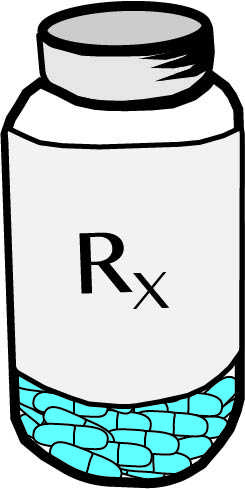The opioid crisis is about more than just pharmaceutical companies
33,091.
This is the number of people who were killed in 2015 by an opioid overdose. This number includes prescription drugs and the commonly associated street drugs, such as heroin, that addicts often turn to after developing an addiction to prescription pain medication.
In the period between 1999 and 2015, around 183,000 people overdosed on opioids; however, estimates from the Centers for Disease Control and Prevention (CDC) say that more than 64,000 people have died between March 2016 and March 2017 alone—an explosive growth which shows that progress is not being made on this issue.
In the United States, there are three main prescription drug distributors: Cardinal Health, AmerisourceBergen and McKesson. These companies control about 85 to 90 percent of the drugs going downstream, yet have claimed they had no idea the epidemic was occurring or that they were aiding it. In addition, some leaders have denied that these drugs pose an addiction risk.
People like to blame doctors, drug companies and pharmacies for the opioid epidemic, and the truth is they are all right. No one actor is solely responsible for the crisis we currently face; however, some are responsible for its continuation.
The CDC has declared the rising death toll of opioid overdoses as an epidemic. It is an issue that should unite the country, as it affects people from all different backgrounds—even President Donald Trump and former President Obama agree that the epidemic is a problem and needs to be addressed. However, in light of a recent joint report from 60 Minutes and The Washington Post, efforts to combat the epidemic have not only failed to make progress, they have been actively impeded.
The Drug Enforcement Agency, in an effort to counter this flow of pharmaceuticals to corrupt doctors and pharmacies, possessed the ability to freeze shipments deemed suspicious. This power, however, was removed in a piece of legislation titled the “Ensuring Patient Access and Effective Drug Enforcement Act” back in 2016.
While the recent release of this report has brought the epidemic and this specific piece of legislation back into the spotlight, many politicians are acting shocked and outraged by the effects it has had on public health. Senator Joe Manchin (D-WV) represents an area hit especially hard by the opioid crisis. He even asked “How did that happen?” in a Senate discussion. In reality, however, he and his colleagues raised no objection to this legislation when it was proposed in the House and Senate.
Many have even tried to turn this into a partisan issue, since the bill was pushed through by Republican representatives Tom Marino (Pa.) and Marsha Blackburn (Tenn.), but that argument detracts from the real issue surrounding the entire opioid epidemic—negligence.
It is because of this negligence that we are in this crisis in the first place. Negligence of the pharmaceutical companies to monitor their supply, negligence of corrupt medical establishments in providing drugs to addicts and the negligence of our representatives in passing legislation without properly understanding it.
Former President Obama signed the bill into law, and President Trump recently elected Marino as the drug czar of the United States—an informal name for the person who directs drug policies—and the entirety of Congress allowed this legislation to unanimously pass. This is an issue that crosses the aisle, between the private and public sectors and most importantly continues to get worse, taking countless American lives.
While this report shows that we have taken steps back in fighting the opioid epidemic, hopefully it serves as a wake-up call to those responsible and also to the American public. We need to hold our leaders accountable for their actions. Out of the people who allowed this epidemic to manifest, some had malicious intents while others did not. The only way we are going to fix the crisis we are in is to address this negligence directly. Until we can fix this, we will continue to lose 91 precious American lives every day to opioid overdose, something we cannot allow to continue.
Correction: In the Nov. 1 issue of The Hawk, the Opinions piece “The negligence epidemic” stated that the Ensuring Patient Access and Effective Drug Enforcement Act legislation is being pushed through Congress. This legislation was passed by Congress and signed into law on April 19, 2016.









































